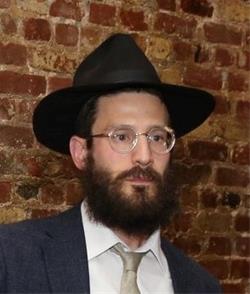One of the most time-honored and widely attended synagogue traditions is Yizkor, the hallowed prayer that memorializes departed loved ones in the presence of Torah scrolls and fellow Jewish mourners. This year, the prayer will be performed at home.
For the first time in modern Jewish history as the result of the coronavirus pandemic, virtually all synagogues around the world will be shut on the final day of Passover, when Yizkor is recited. Never in living memory has there been a situation in which in most places throughout the world there is no one to go to synagogue and recite the sacred memorial prayer.
Does that mean that this year the Yizkor prayer itself will become but a memory?
Thankfully, the answer is no.
True, rabbinic authorities are clear that the preferred place to recite Yizkor is in a synagogue following the reading of the Torah. However, when that cannot be done, as is the case this year, it is possible—and encouraged—to recite the prayer at home, along with a mental pledge to donate funds to charity in memory of the departed after the holiday.
Through mass emails, social-media posts, texts and calls, rabbis across the world are letting congregants know that this year, like every other, they still have the opportunity to memorialize their loved ones. To do so, they are directing Jewish mourners to online resources available, such as the “Yizkor at Home” guide at Chabad.org.
It’s a lot of material to chew through, but Rabbi Mendel Kaplan on Chabad.org has done the heavy lifting and has produced a lecture that dives deep into the source material from which he brings his audience to the following conclusion: When even remotely possible, Yizkor is indeed best performed in the synagogue. But when not, it is perfectly legitimate and equally special in one’s own living room.
‘I Will Hold the Scroll for You’
Some rabbis have taken matters a step further, capitalizing on the reality that they hold the keys to synagogue buildings they serve in, offering their congregants the following option:
“I am volunteering to serve as your proxy and representative in offering the Yizkor prayer for your loved ones in our shul while clutching the Torah on your behalf.”
In his weekly email, Rabbi Ari Kirschenbaum, leader of the Chabad Heights synagogue in the Prospect Heights section of Brooklyn, N.Y., let his congregation know that “on Thursday morning, I will walk to our Chabad Heights synagogue, where I will pray in physical solitude in compliance with the critical social-distancing measures in force. Spiritually, however, I will have you and your family very much in mind and heart.”








Start a Discussion